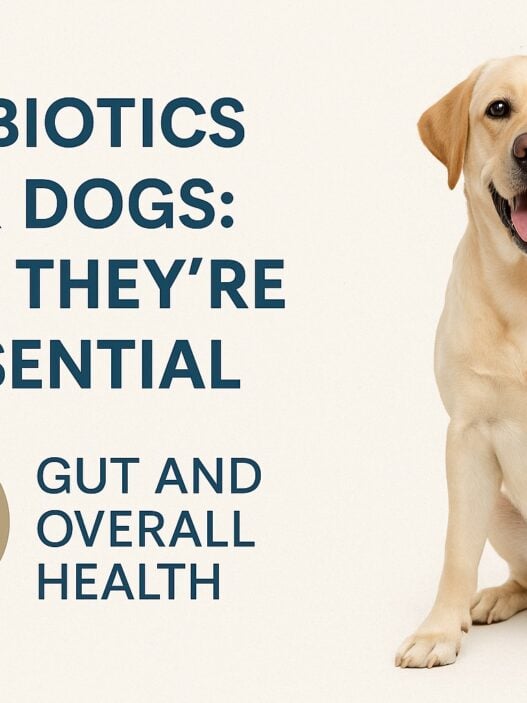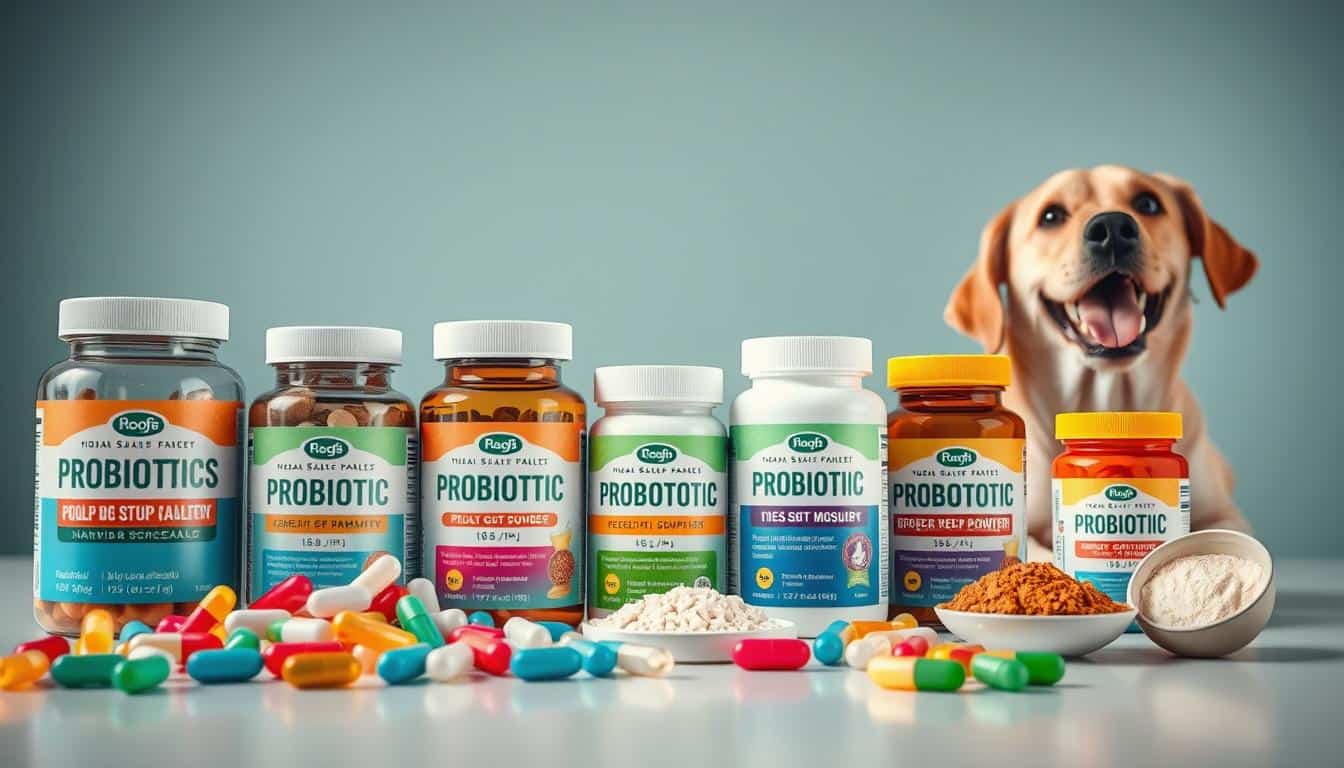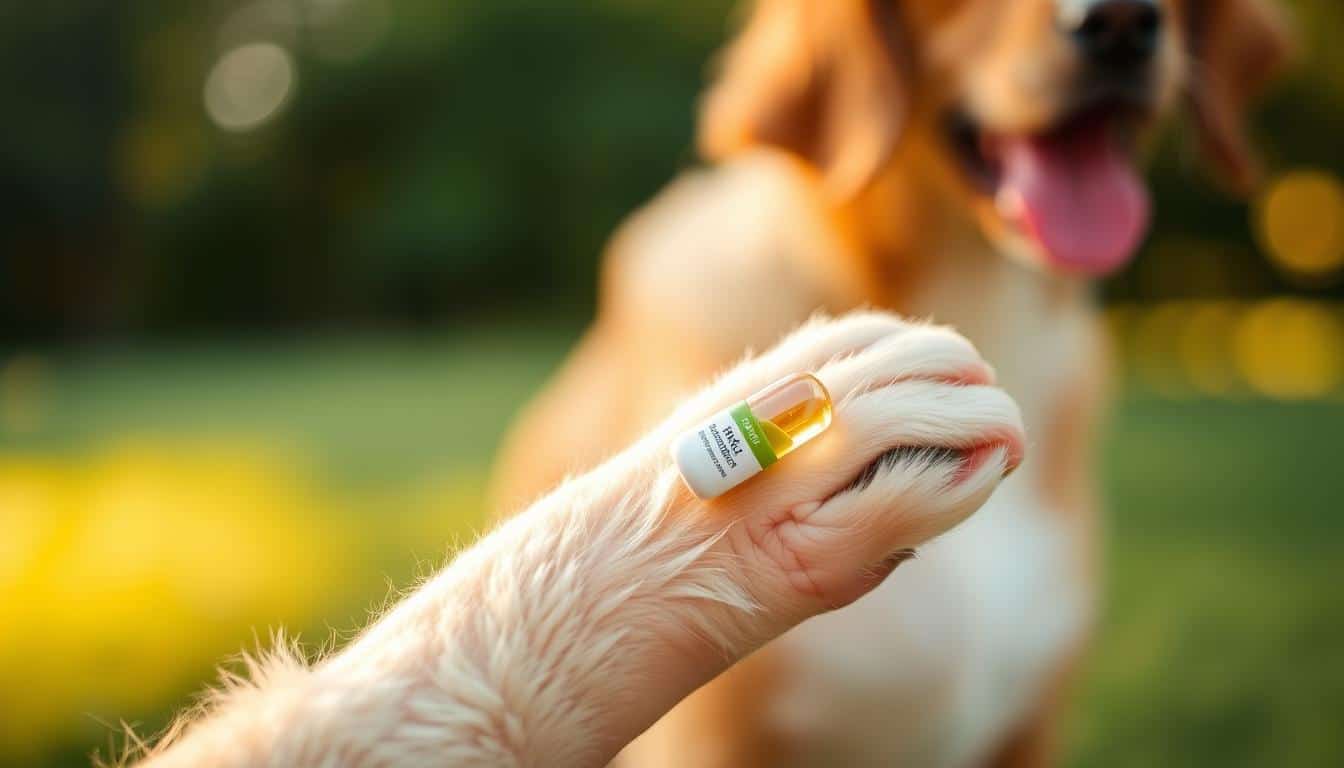As pet owners, we’re always on the lookout for ways to keep our dogs healthy, happy, and full of energy. One of the best-kept secrets to your dog’s well-being? Prebiotics.
If you’ve heard the term but aren’t quite sure what prebiotics are—or how they’re different from probiotics—you’re not alone. This guide answers some of the most common questions about prebiotics for dogs, from what they are to which foods naturally contain them.
What Are Prebiotics for Dogs?
Prebiotics are special types of non-digestible dietary fiber that travel through your dog’s digestive system to the colon, where they serve as food for beneficial gut bacteria. In simple terms, prebiotics help nourish the “good” bacteria already living in your dog’s gut, allowing them to multiply and maintain a healthy digestive environment.
By fueling these beneficial microbes, prebiotics support everything from digestion and immune function to nutrient absorption and mood regulation.
What Is the Difference Between Prebiotics and Probiotics for Dogs?
The terms prebiotics and probiotics are often used together, but they’re not the same:
Prebiotics are fiber-based nutrients that feed the good bacteria already in the gut.
Probiotics are live beneficial bacteria that are added to the gut to improve the microbiome balance.
Think of it this way:
🦠 Probiotics = the seeds
🌱 Prebiotics = the fertilizer
Together, they work synergistically—known as synbiotics—to maintain a balanced and resilient gut ecosystem.
What Prebiotics Are Good for Dogs?
The best prebiotics for dogs are those that are safe, effective, and well-tolerated. Some of the most common and beneficial prebiotics include:
Inulin – Found in chicory root, this is one of the most widely used and effective prebiotics.
Fructooligosaccharides (FOS) – A type of short-chain fiber that helps support healthy bacteria growth.
Galactooligosaccharides (GOS) – Derived from lactose, GOS supports Bifidobacteria in the gut.
Mannan-oligosaccharides (MOS) – Sourced from yeast cell walls, these may also aid immune function.
Beta-glucans – Naturally found in oats and mushrooms, beta-glucans also have immune-boosting benefits.
Many high-quality dog supplements now include a blend of these prebiotics to support overall gut health.
What Do Prebiotics Do for Dogs?
Prebiotics play a vital role in your dog’s internal health. Here’s what they can do:
Improve digestion – Help regulate bowel movements and reduce gas or bloating.
Strengthen the immune system – A healthier gut helps fend off harmful pathogens.
Increase nutrient absorption – Help your dog get more value from the food they eat.
Support a healthier skin and coat – Reduced inflammation in the gut can lead to visible improvements in skin health.
Balance gut flora after antibiotics – Aid in rebuilding healthy bacteria levels after illness or medication.
Support brain and mood health – Through the gut-brain axis, prebiotics may help reduce stress and anxiety in dogs.
What Foods Contain Prebiotics for Dogs?
You don’t necessarily need a supplement to introduce prebiotics—many foods contain natural prebiotic fibers. Here are some dog-safe options (always check with your vet before adding new foods):
Pumpkin – High in fiber and gentle on the stomach.
Sweet potatoes – A great source of complex carbohydrates and fiber.
Apples (without seeds) – Contain pectin, a soluble fiber with prebiotic benefits.
Bananas (especially green bananas) – Rich in inulin and resistant starch.
Chicory root – One of the most potent sources of inulin.
Oats – Contain beta-glucans that support gut health.
Dandelion greens – Safe in small amounts and rich in inulin.
If you’re feeding these whole foods, go slowly and watch for any digestive upset. Some dogs are more sensitive than others when introducing new fibers.
Final Thoughts
Prebiotics are an easy and effective way to support your dog’s gut—and overall—health. Whether you choose to include prebiotic-rich foods or use a supplement, adding this gut-friendly fiber to your dog’s routine can lead to better digestion, stronger immunity, and even a shinier coat.
When your dog’s gut is healthy, everything else starts to fall into place.














